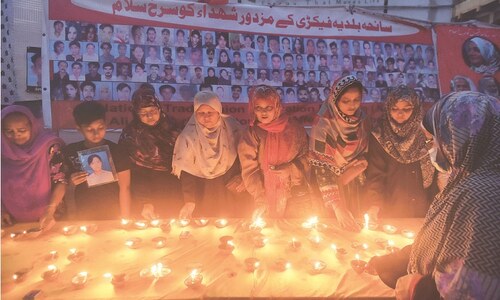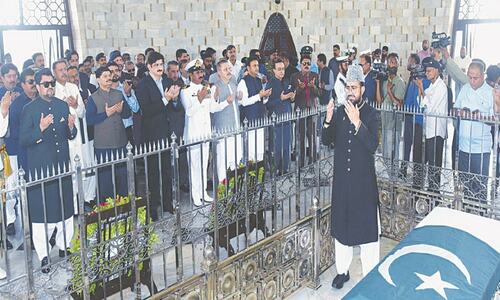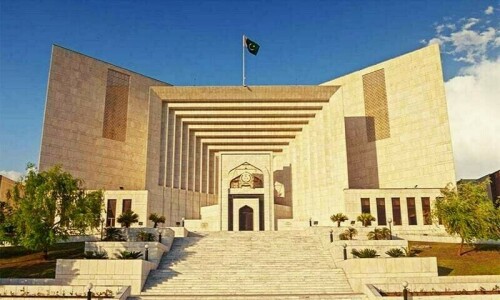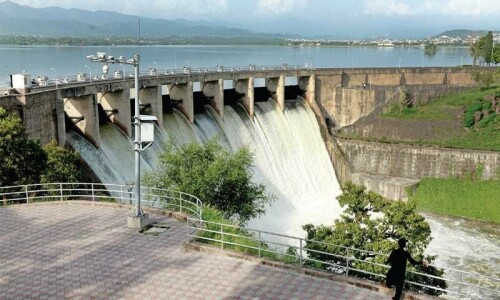KARACHI, Sept 13: A collapse of the KESC generation, transmission and distribution system on Saturday resulted in the shortfall of over 700 megawatts and sparked two-hour load-shedding after every 30 minutes or so in most localities, adding to the woes of the consumers on a sizzling weekend.
Their misery continued overnight as the utility’s managers even failed to live up to the promise of ensuring power supply during the Iftar and Sehri times. Many citizens described the spells of load-shedding as relentless.
Amid reports of frequent tripping of the overloaded distribution system, there were also complaints of PMTs and sub-stations going out of action due to excessive heat causing sparks in the system. Not a single locality escaped this menace.
Insiders said the KESC management was resorting to massive load-shedding to save on fuel cost, especially of furnace oil, to ensure its profit margin. Several units were shut down to save furnace oil cost without any consideration of the people’s need.
This was the situation a day after the federal minister for water and power had welcomed the end of load-shedding in the country. While the people continued to suffer, the KESC management approached the federal government to seek a waiver of the seven-year cap on tariff increase which was imposed by the National Electric Power Regulatory Authority at the time of privatisation of the utility. Since there was a cap on tariff increase, the utility exploited the rise in oil price and passed its entire cost on to the consumers on the pretext of fuel adjustment charge. Now the GST is also passed on to the consumers.
Rauf Yusuf, who is working on the mechanism of new tariff, said the cost of fuel had gone up many times and no one could run the utility without recovering that cost. He said the new tariff, when announced by the KESC, would be effective from September. He declined to specify to what extent the consumer would have to pay more every month for the uncertain supply of electricity.
While the new management is trying hard to extract the pound of flesh at costs, Karachiites continue to suffer power outages amid apprehensions that the city might soon plunge into darkness due to overloading and tripping of most of the 112 transformers installed in the Karachi Electric Supply Company’s 46 grid stations which are operating at a capacity much higher than the specified international safety standards.
Sources said 31 transformers at some grid stations were operating at 100 per cent capacity against the international standard of 70 per cent. Twenty-one transformers were operating at 90 per cent capacity while 25 were functioning at 80 per cent. Only 13 transformers were operating at 70 per cent. These transformers are of 30 to 40 MVA capacities.
Because of operating at a much higher level of international safety standards, these transformers, insiders fear, may burn out and result in a total collapse of the KESC transmission and distribution system, as was witnessed on the day the city received the first monsoon showers, causing widespread losses.
Given the Karachi Electric Supply Company’s failure to enhance its generation and distribution capacity, residents are likely to suffer the lack of electricity for several hours at a stretch.
The situation this summer appears even more ominous. Last summer, when the peak demand in the city touched 2,450MW, Wapda provided up to 700MW to the KESC. The supply was reduced to 300MW in November and since then, the residents of various areas endured over four-hour-long spells of load-shedding.
The grim situation is causing concern among recently-elected public representatives who have reportedly tried to meet KESC officials in an attempt to avert possible power riots in the city in the future. However, no meeting has materialised so far.
In the early 1990s, the KESC used to export electricity to Wapda but corruption and mismanagement have led to it now needing to import about 27 per cent of its total requirement.
In an attempt to improve its functioning, the utility was privatised in 2005, but no positive results were yielded, as the then president, Pervez Musharraf, acknowledged at the inauguration of a DHA desalination plant.
No spokesman for the KESC was available for comment.














































Dear visitor, the comments section is undergoing an overhaul and will return soon.